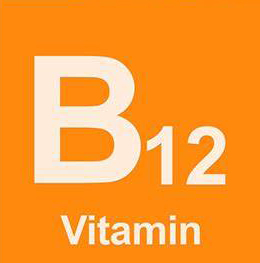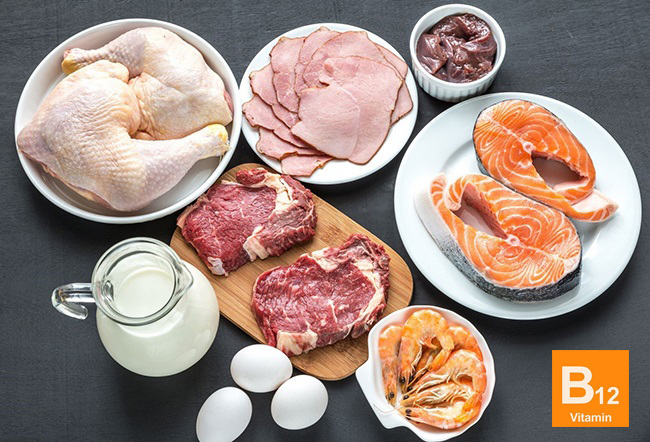
Vitamin B12 is a water-soluble vitamin that is essential for your health. It plays a very important role in the production of red blood cells and in helping your nervous system function properly. Vitamin B12 deficiency can cause a variety of symptoms – such as fatigue, pins and needles, and memory problems. You can have a blood test to make sure that you are getting enough vitamin B12.
What is Vitamin B12?

Vitamin B12, also called cobalamin, is a type of B vitamin. It is a water-soluble vitamin, which means it can be dissolved in water. Your body can store vitamin B12 in the liver for years.
What does vitamin B12 do?
Vitamin B12 is important for:
- Production of red blood cells
- DNA synthesis
- Healthy nervous system
Vitamin B12 is also important for heart health and is essential for the development of the baby’s brain and nervous system during pregnancy.
Vitamin B12 deficiency can cause a variety of problems.
Anemia
Vitamin B12 deficiency means that your body cannot produce enough red blood cells or each blood cell does not have enough hemoglobin – this is known as anemia. This means that you cannot carry enough oxygen throughout your body.
Nerve damage
Long-term vitamin B12 deficiency can cause nerve damage. This is because vitamin B12 is needed for the production of myelin – the protective sheath that wraps around your nerves. If this is not recognized early enough, irreversible nerve damage can occur. This is rare, but can sometimes damage your optic nerve and cause blurred vision.
Balance problem
Long-term vitamin B12 deficiency can also cause balance disorders.
Psychological problems
Vitamin B12 deficiency can make you feel confused or depressed. It’s also linked to poor memory and dementia.
Symptoms of vitamin B12 deficiency
Signs and symptoms of vitamin B12 deficiency are:
- Overwhelming exhaustion
- weakness
- A tingling sensation (especially in the arms and legs)
- Mouth ulcer
- Swollen and inflamed tongue (glossitis)
- Blurred vision
- Bad memory
- Depression
In rare cases, it can cause heart and fertility problems.
Checking your vitamin B12 levels is especially important when you have these symptoms. Some of these symptoms, such as: B. nerve damage can be irreversible.
Also Read : Can Eating Fruit Help You Lose Weight? That’s what Ayurveda says
Causes of Vitamin B12 Deficiency
Several things can cause , including:
- Pernicious anemia – your immune system mistakenly attacks the cells in the stomach that produce intrinsic factor (which you need to absorb vitamin B12)
- Plant-based diets, such as vegan, vegetarian and dairy-free diets, sometimes lack vitamin B12
- Medications – some medications, such as proton pump inhibitors (PPIs), can block the absorption of vitamin B12
You are also at increased risk if:
- You are pregnant or breastfeeding
- Over 50 years old – because you may have stopped making enough hydrochloric acid in your stomach that is needed for vitamin B12 to be absorbed
- you have a gastrointestinal disease – such as celiac disease or Crohn’s disease
You should also remember that folic acid supplements can cover vitamin B12 deficiency. This is because it can increase your symptoms so they go unnoticed.
How to test vitamin B12 levels
You can check your vitamin B12 levels with a simple finger blood test. An active vitamin B12 test is the best way to measure your levels – this is the amount of vitamin B12 your body can actually use.
How to treat vitamin B12 deficiency
There are many things you can do to increase your vitamin B12 levels. Vitamin B12 Foods
Diet
Foods rich in vitamin B12 are:
- Meat from organs such as liver and kidneys is the richest source of vitamin B12
- Beef
- Fish – such as scallops, sardines, salmon and tuna
- Milk and dairy products
- Egg
Vitamin B12 occurs naturally in meat, fish or dairy products. But there are herbal sources fortified with vitamin B12 such as:
- Alternative to fortified milk
- Fortified cereal
- Enriched nutritional yeast
Supplements
You can also take vitamin B12 supplements. It is usually available as cyanocobalamin – a form that your body can easily convert and use. It is also possible to inject vitamin B12 – this is especially helpful if your deficiency is caused by problems with gastric absorption. The hydroxocobalamin form can be given every three months.
The Bottom Line
Vitamin B12 is an essential nutrient that the body needs for many basic functions.
It is found in large amounts in animal products, fortified foods, and dietary supplements. Some of the richest sources are liver, beef, sardines, shellfish, and dairy products.
Whether you want to increase your vitamin supply or prevent deficiency symptoms, eating these foods can greatly improve your overall health.



